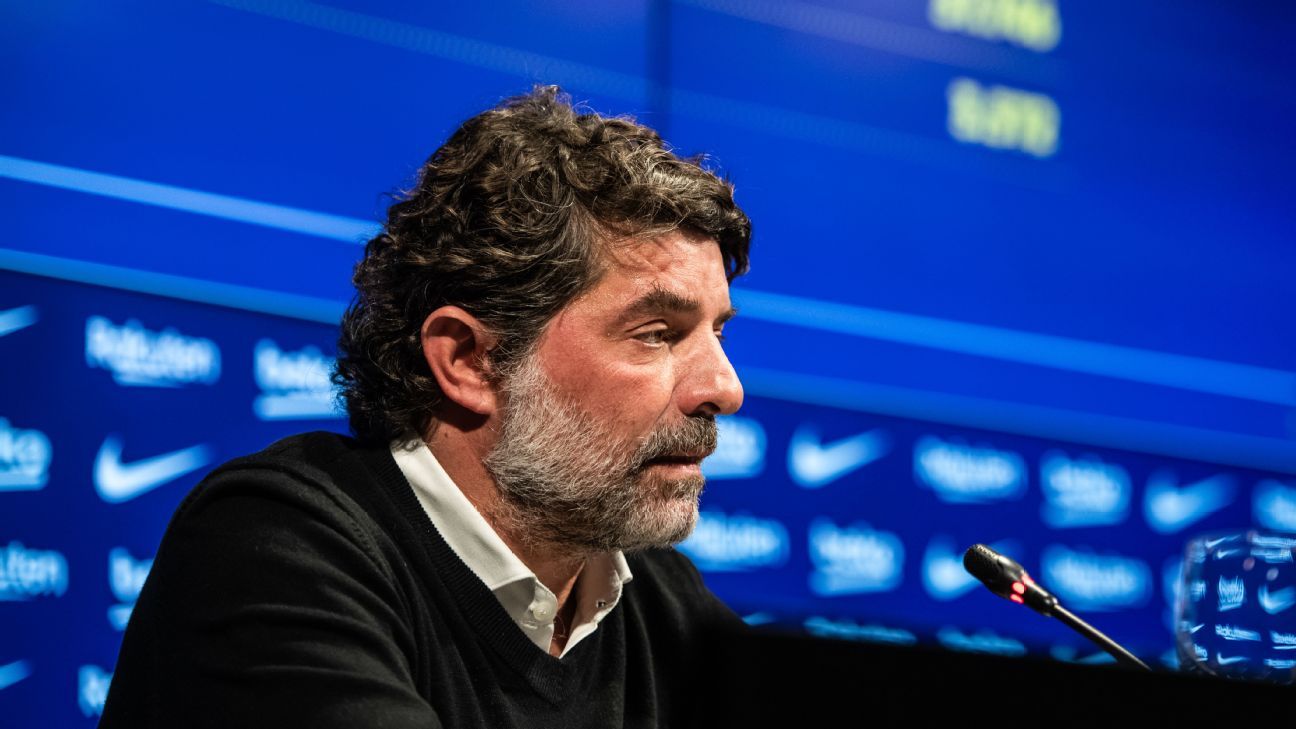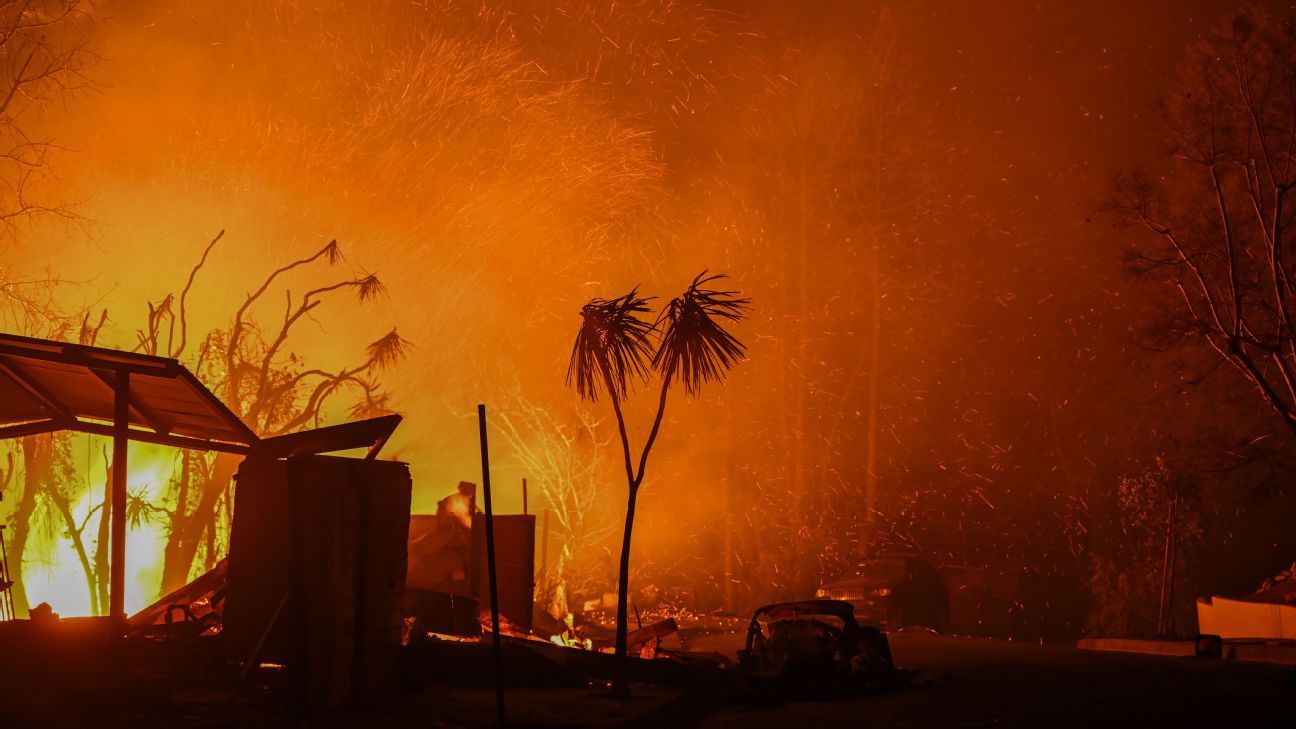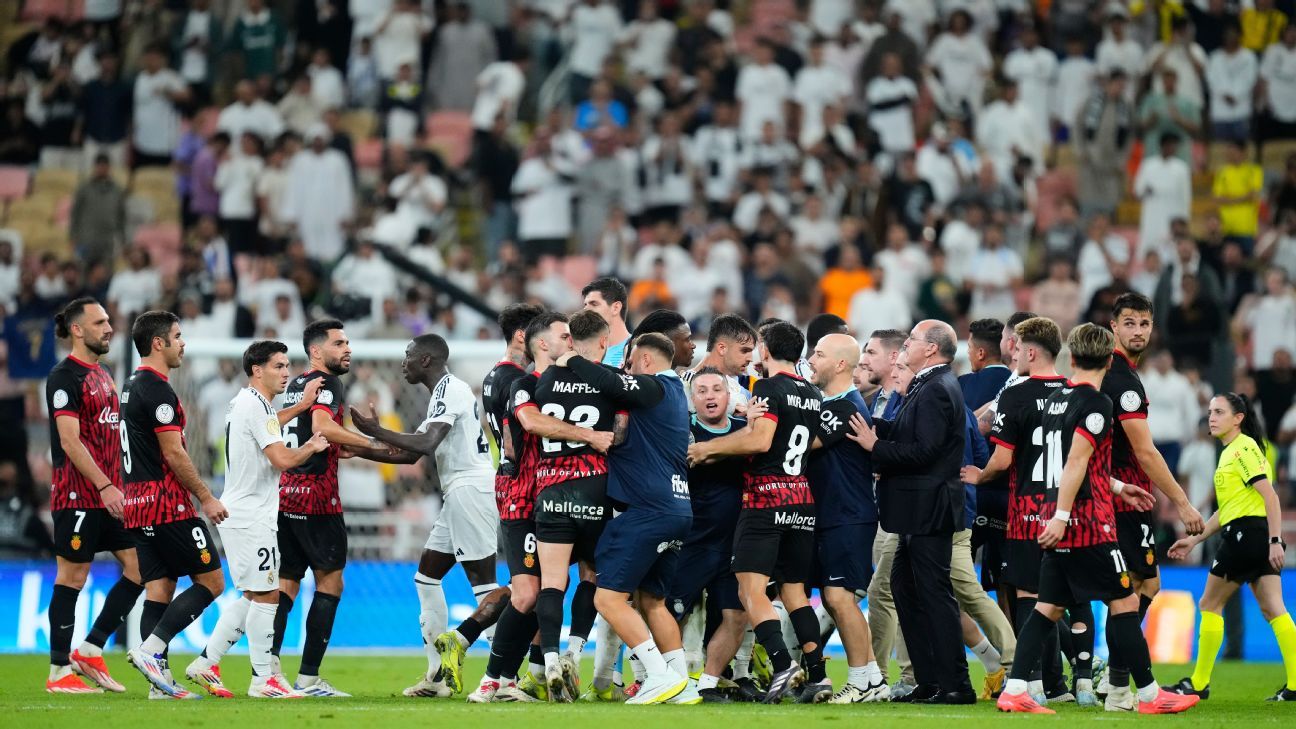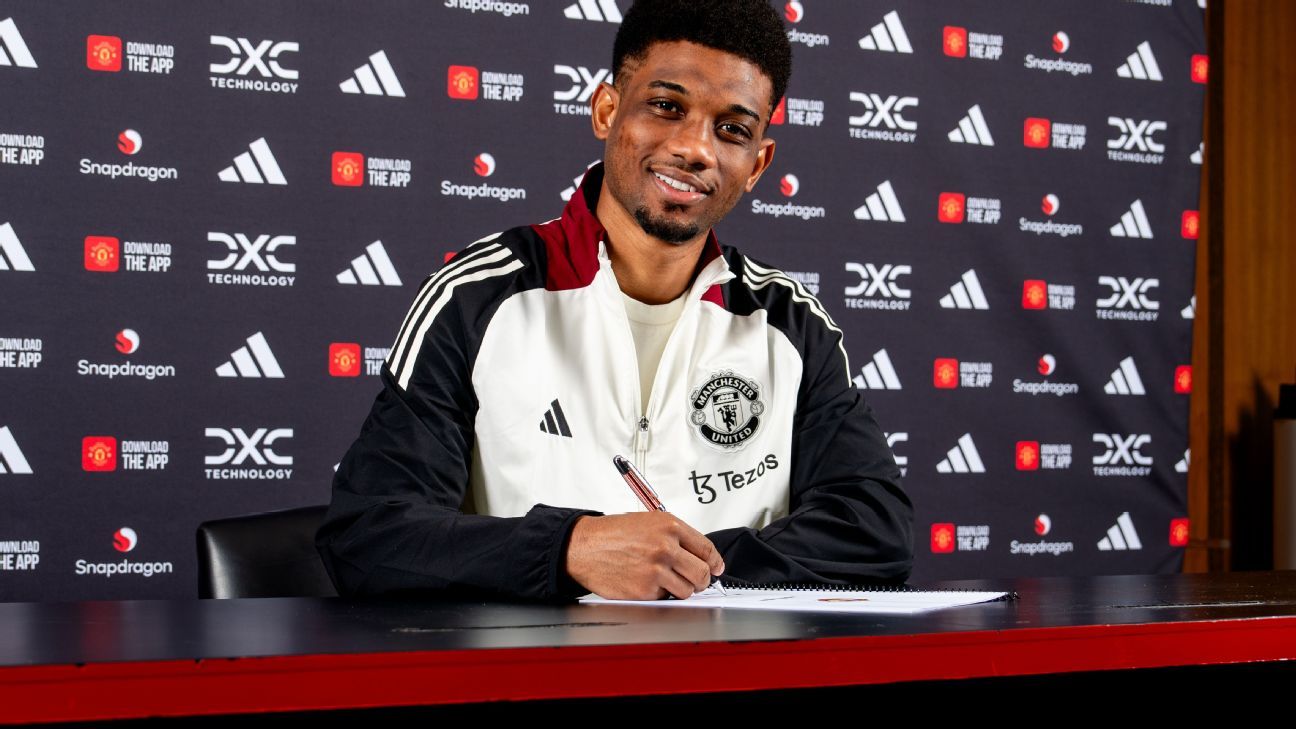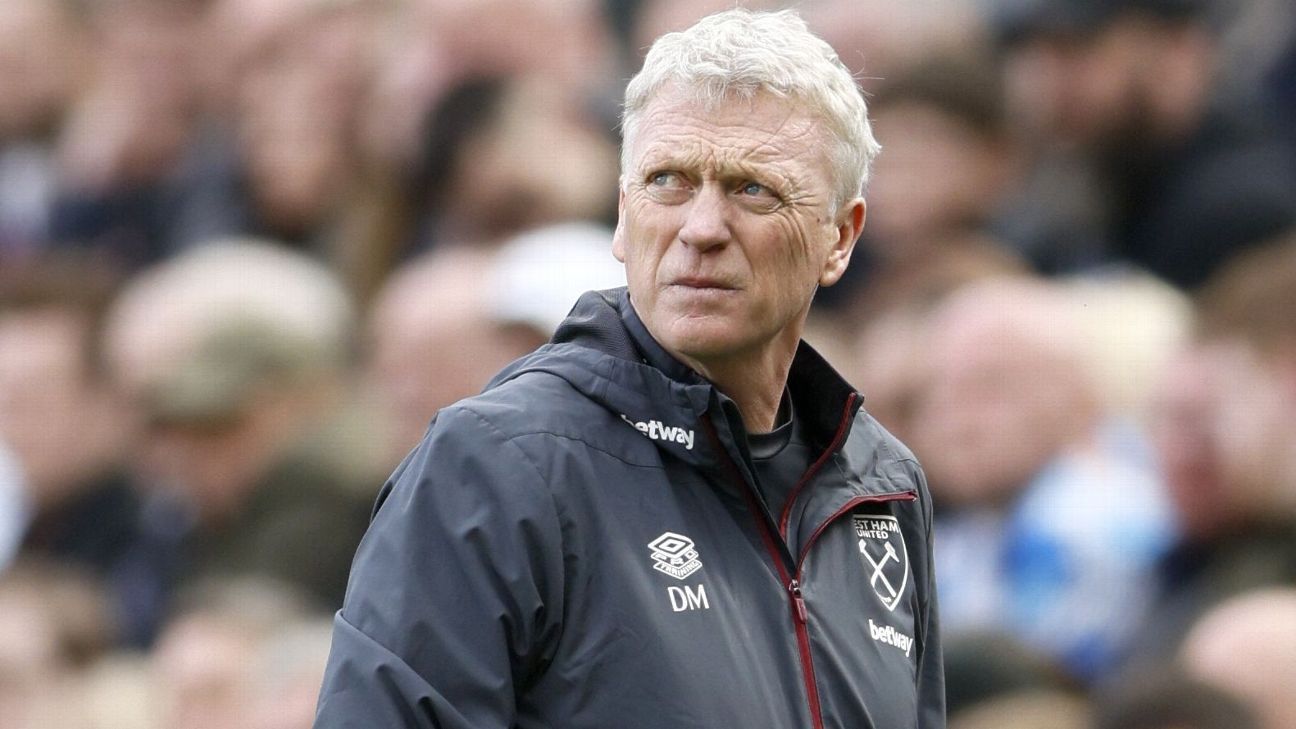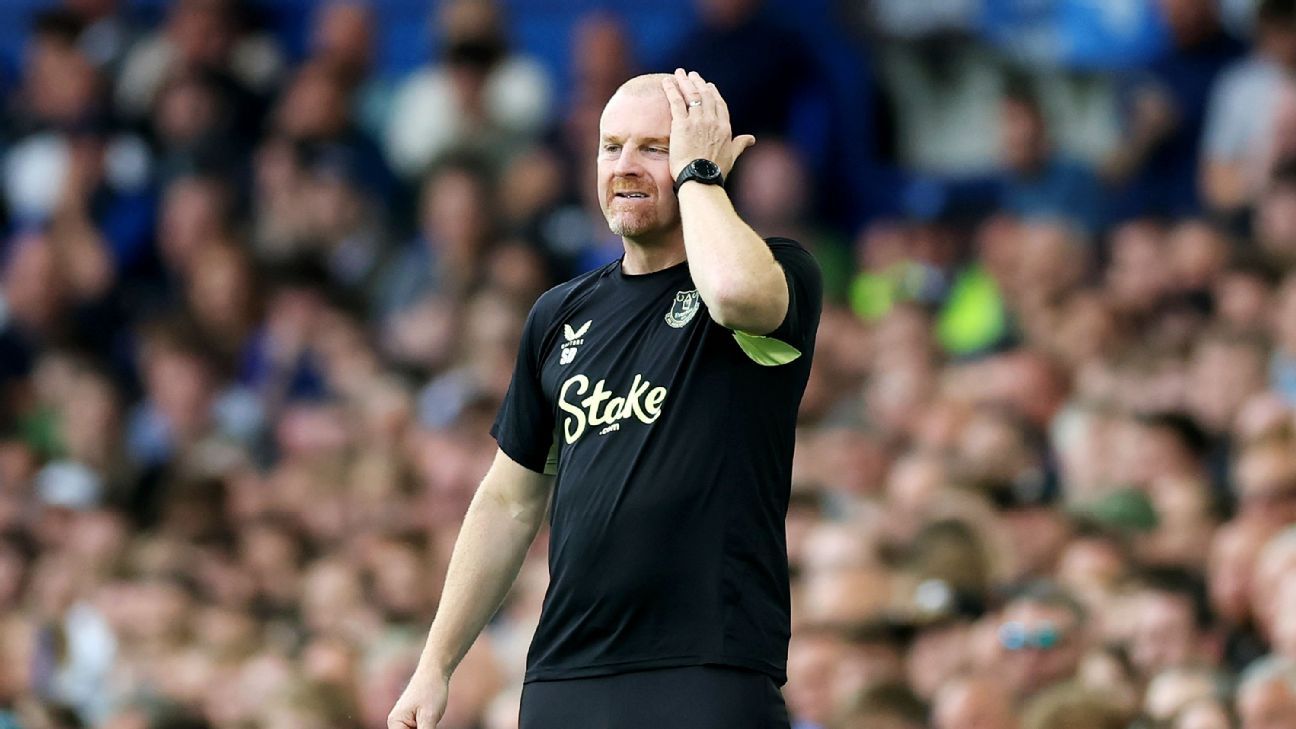
Tim Vickery, South America correspondentDec 4, 2023, 03:30 AM
After the last round of the Brazilian Serie A is completed on Wednesday night, it is almost certain that Palmeiras will be crowned champions. It would take a miracle to wrest the title away from them. The Verdão would have to lose, and their rivals would have to win by an extraordinary margin. The goal difference of Palmeiras is eight better than Atletico Mineiro and 16 better than Flamengo, the only clubs who can match their points tally.
This triumph will be a truly remarkable achievement, and as and when it happens it will be deserving of a deeper dive. But more than the title that Palmeiras claimed, 2023 will surely go down in history as the one that Botafogo threw away.
- View the full Brazilian Serie A standings
- Stream on ESPN+: LaLiga, Bundesliga, more (U.S.)
Without a league title since 1995, the venerable Rio club, suppliers of so many players to Brazil's national team back in the glory days, were a full 13 points clear at the halfway stage. The title was theirs to lose -- and they lost it, with a series of mishaps so bizarre that it could well leave a deep trauma.
Any mathematical hope ended on Sunday with a 0-0 draw at home to Cruzeiro, their 10th game without a win. Early in that run, on Nov. 1, Botafogo were 3-0 up at home to Palmeiras and still managed to lose 4-3 -- the single most important moment in the title race. The following week they were 3-1 up at home to Gremio and lost 4-3. Last Sunday they went a goal up early at home to Santos and conceded the equaliser in the 89th minute.
Botafogo's midweek game was even worse. Away to already relegated Coritiba, in a match played behind closed doors, they took the lead from the penalty spot deep into stoppage time -- and still managed to let in a goal at the other end.
Some of this is simply inexplicable, the cruel or glorious surprise that the game of football is so capable of producing. But, along with chance and mystery, there is another explanation for such inconsistency -- and it has to do with the deficiencies of the Brazilian calendar.
Organising football in a country the size of a continent is not easy, and Brazil does it badly. Simply put, there are too many games. It is normal for teams to play over 70 in the course of the year. Throw in all the travelling time and it is all but impossible to stay consistent throughout. Choices have to be made; priorities defined.
The year starts with the state competitions, one for each of the 27 states that make up Brazil. Botafogo did not attach great importance to this. They finished outside the top four in Rio de Janeiro, keeping their gunpowder dry for the national league.
No one remotely expected Botafogo to be candidates for the title. The club's model is essentially pragmatic. The Fogo have scoured the world looking for players in places that other clubs may have ignored and have implemented a style of play that stresses aerial strength in both penalty areas and fast wingers for the counter-attack. They are a physically imposing side that is not easy to play against. This is only their second season back in the first division, and the side was constructed with the main priority of ensuring they stay there.
But the wins -- many of them narrow, hard-fought affairs -- kept rolling in and their lead kept getting bigger. Portuguese coach Luis Casto was seduced away by an offer from Saudi Arabia and there was a short-lived experiment with his compatriot Bruno Lage. But at the business end of the season much of the focus was on trying to turn back the hands of time, with the same side from the first part of the campaign playing the same way, only with very different results.
In large part this was down to psychological pressure. The fear of letting such a big lead slip proved so pervasive that it became a self-fulfilling prophecy.
But there is something else. The context was different. Towards the end of the season, they were meeting teams whose sole focus was on the Brazilian Serie A, and this was not the case before.
Brazil's domestic cup is a high-profile competition, more lucrative than the league. But that came to an end with a two-legged final in September. And the maximum priority for the big teams is the Copa Libertadores. For Palmeiras, that competition ended early in October. Two months prior, they had eliminated Atletico Mineiro.
With the other giants, Flamengo of Rio, sorting themselves out after a turbulent year and appointing ex-Brazil boss Tite, suddenly Brazil's big three -- winners of all the league titles since 2018 -- were firing on all cylinders with no other distractions. Flamengo ended the year strongly, though last Wednesday's 3-0 defeat at home to Atletico Mineiro all-but eliminated them from the title race. Atletico, meanwhile, have highlighted the dangers of writing off veteran coach Luiz Felipe Scolari, putting together a run of seven wins and two draws in their last nine games. And Palmeiras, in the last 10, have managed eight wins and a draw.
Towards the end of the year, then, the bar has been much higher, and Botafogo have no longer been able to leap over it.
 (1).png)
 1 year ago
21
1 year ago
21
